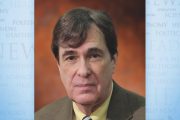We raise taxes on things we want to discourage, like cigarettes, and we lower taxes on things we want to encourage, like education.
The idea is to manipulate prices by changing costs, via taxation, so that we end up with more expensive Marlboros, smaller hikes in tuition, fewer smokers and more college students, i.e., a smarter and healthier America.
That’s basic economics, straight out of Economics-101. The Law of Demand says that sales generally go down when prices go up, and vice versa, all other things being equal.
The problem with Obama is that he treats jobs and job creators like cigarettes.
The aforementioned Law of Demand, for instance, applies to President Obama’s proposal to raise taxes on capital gains and dividends. Higher taxes on those sources of income directly raise the cost of capital and a higher cost of capital means that less capital will be employed. The most likely consequence is less output, less growth, lower job creation, and less income — and more red ink and higher government deficits as fewer tax dollars flow into the government’s coffers.
So why the push by Obama to raise taxes on dividends and capital gains when the probable consequence is more unemployment in the private sector and lower federal revenues to pay for his agenda of expansionist government?
“Obama is willing to trade losses in jobs and wages to advance his political ideology for tax fairness,” contends J. D. Foster, Ph.D., a senior fellow in fiscal policy economics at the Heritage Foundation. “The President is intentionally sacrificing jobs in the pursuit of his own notions of fairness with little or no hope of increasing revenues in the process.”
The “intentionally” part is open to debate, but it’s fairly certain that Obama puts wealth redistribution, income leveling, and fairness on the front burner, ahead of economic growth, job creation and economic liberty in his list of priorities.
A key objective in his economic program, as candidate Obama explained to Joe the Plumber, Joe Wurzelbacher, is the redistribution of income and wealth, by way of higher taxes on “the rich.”
“I think when you spread the wealth around, it’s good for everybody,” Obama told Wurzelbacher.
Andy Roth, vice president for government affairs at the Club for Growth, a Washington-based organization that advocates economic freedom and limited government as the means to economic growth and prosperity, provided a translation of Obama’s comment to Wurzelbacher: “He’s perfectly happy to destroy wealth as long as he can redistribute it.”
In Obama’s game plan for the economy, he seems to be saying that taxes on capital gains and dividends should be higher, for “fairness,” even if it results, intentionally or unintentionally, in less investment, lower growth, more joblessness, smaller revenues for the government, and more federal debt.
Here, for example, is the exchange between candidate Obama and moderator Charlie Gibson during a presidential debate regarding Obama’s proposal to increase the tax on capital gains from 15 percent to 28 percent.
“In each instance when the rate dropped, revenues from the tax increased — the government took in more money,” said Gibson. “And in the 1980s when the tax was increased to 28 percent, the revenues went down. So why raise it at all, given the fact that 100 million people in this country own stock and would be affected?”
Replied Obama, “Well, Charlie, what I’ve said is that I would look at raising the capital gains tax for purposes of fairness.”
The goal appears to be a more thorough soaking of “the rich” in the pursuit of “fairness,” even though the top 10 percent of U.S. households already pay 70 percent of the total revenues collected via the federal income tax.
Our problem, in other words, is “the rich,” more than any lack of investment or shortage of inventiveness. It’s a lesson that Rev. Jeremiah Wright preached to Obama in the Trinity church in Chicago.
In his autobiography, Dreams from My Father, Obama quotes a sermon by Wright that he says brought him to tears. A small boy sitting nearby in church handed him a tissue.
We are in an unfair world, bellowed Wright, “where cruise ships throw away more food in a day than most residents of Port-au-Prince see in a year, where white folks’ greed runs a world in need.”
They’re hungry in Haiti, in other words, because of those big buffets on cruise ships. They’re poor because of white folks’ greed, not because of Papa Doc, Baby Doc and all the other indigenous roadblocks to political freedom and economic liberty.
Ralph R. Reiland is an associate professor of economics at Robert Morris University in Pittsburgh.




